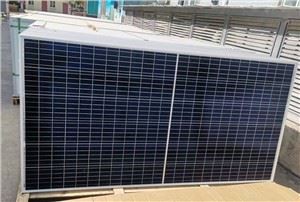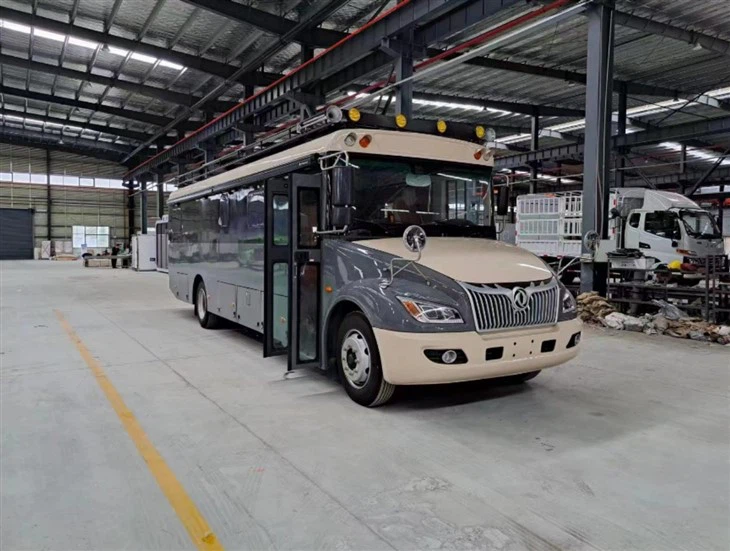Roll Off Truck for Sale in California: Your Complete Guide

Finding the right roll-off truck for your needs can feel overwhelming, especially in a vast market like California. This article serves as a comprehensive resource to help you understand roll-off trucks, their uses, key features to look for when purchasing, and where to find them in California. We’ll also address financing options, maintenance tips, and answer some common questions to ensure you make an informed purchase.
What is a Roll Off Truck?
A roll-off truck is a type of vehicle designed to transport roll-off containers. These trucks feature a special mechanism that allows the container to be loaded and unloaded easily, making them ideal for waste management, construction sites, and landscaping. With a variety of sizes available, they can handle different loads and types of materials.
Why Choose a Roll Off Truck?
Versatility
Roll-off trucks are known for their versatility, accommodating various types of containers that can hold anything from construction debris to recyclable materials. This makes them suitable for residential, commercial, and industrial applications.
Cost-Effectiveness
Investing in a roll-off truck can lead to cost savings in waste disposal, especially for businesses that frequently manage large volumes of waste. Owning a truck can reduce dependency on container rental services.
Operational Efficiency
With a roll-off truck, loading and unloading waste containers becomes a streamlined process, saving time and labor. The design of these trucks allows for quicker turnarounds, improving overall operational efficiency.
Key Features to Consider When Buying a Roll Off Truck
1. Truck Dimensions and Weight Capacity
Determine what size and weight capacities you require based on the typical loads you plan to transport. Trucks typically have different configurations (such as single axle or tandem axle) that affect their weight capacity.
2. Engine Type and Fuel Efficiency
Consider the engine type for reliability and fuel efficiency. Diesel engines are often preferred for heavy-duty applications due to their durability and better fuel economy compared to gasoline engines.
3. Container Compatibility
Ensure that the roll-off truck is compatible with the types and sizes of containers you will need. Different jurisdictions may require specific types of containers for waste and recycling.
4. Maintenance and Serviceability
Look for trucks that are easy to maintain. Some brands offer better service support and warranty packages, which can be beneficial for long-term ownership.
5. Safety Features

Safety is paramount. Prioritize purchasing trucks equipped with modern safety features, including backup cameras, load sensors, and enhanced braking systems.

6. New vs. Used Trucks
Consider whether you want a new or used roll-off truck. New trucks offer the latest technology and fewer immediate maintenance concerns, while used trucks can be more affordable but may come with their own issues.
Where to Find Roll Off Trucks for Sale in California
1. Local Dealerships
Check with local truck dealerships that specialize in commercial vehicles. They often have a variety of new and used roll-off trucks available. Examples include:
| Dealership Name | Location | Contact Number |
|---|---|---|
| California Truck Centers | Fresno, CA | (559) 264-1000 |
| Hino Motors Sales USA | Santa Fe Springs, CA | (562) 944-5111 |
2. Online Marketplaces
Websites like TruckPaper, eBay, and Craigslist have extensive listings of both new and used roll-off trucks. Be sure to check multiple listings and always communicate directly with sellers.
3. Auctions
Auction events can offer fantastic deals on roll-off trucks. Check local announcements for upcoming auctions, or visit sites like Ritchie Bros. Auctioneers for nationwide events.
4. Specialty Equipment Dealers

Look for dealers that specialize in heavy equipment and trucks. They often have unique inventory and can provide guidance in selecting the right truck for your needs.
Financing Options for Roll Off Trucks
1. Bank Financing
Traditional banks often offer loans for large purchases like trucks. It’s advisable to get pre-approved to better understand your budget.
2. Equipment Financing Companies
Several companies specialize in financing equipment purchases. They often offer flexible payment plans tailored to your cash flow needs.
3. Lease Options
Leasing is an alternative to buying outright. This option allows you to use the truck without the hefty upfront cost, which can be beneficial for businesses with varying needs.
Maintenance Tips for Your Roll Off Truck
1. Regular Inspections
Conduct regular inspections of your truck to identify any potential issues before they become major problems. Look for leaks, tire wear, and proper fluid levels.
2. Service Schedule
Follow the manufacturer’s recommended maintenance schedule. This includes oil changes, brake checks, and filter replacements to keep the truck running smoothly.
3. Cleaning and Upkeep
Regularly clean your truck’s exterior and container. This not only maintains appearances but also prevents corrosion and wear over time.
4. Training Operators
Ensure that operators are well-trained on how to properly use the roll-off mechanism and perform routine safety checks before operation.
Practical Examples of Roll Off Truck Uses
Construction Site Waste Management
Roll-off trucks are predominantly used on construction sites to transport debris such as concrete, wood, and metal. They allow for efficient waste disposal, keeping the site organized.
Residential Cleanouts
In residential areas, homeowners may rent roll-off trucks for seasonal cleanouts or relocations. They provide ample space for large items like furniture and appliances.
Landscaping Projects
Landscapers use roll-off trucks to dispose of yard waste and other materials necessary for projects. They enable efficient transport of excess soil, rock, and plant debris.
Frequently Asked Questions
1. How much does a roll-off truck cost in California?
The cost of a roll-off truck in California can range from $30,000 for used trucks to over $150,000 for new, high-end models, depending on features and specifications.
2. Do I need a special license to operate a roll-off truck?
Yes, in California, you will generally need a Commercial Driver’s License (CDL) to operate a roll-off truck, primarily if it exceeds certain weight limits.
3. Can I rent a roll-off truck instead of buying?
Yes, many companies offer roll-off truck rentals. This can be an economical solution for short-term projects or for businesses that do not require regular use.
4. What should I do if my roll-off truck breaks down?
Always have a backup plan for breakdowns. Create a maintenance schedule to reduce the risk and ensure the trucking company understands the importance of timely repairs.
5. Are roll-off trucks suitable for small businesses?
Yes, they can be an excellent investment for small businesses involved in construction, renovations, landscaping, or waste management, providing cost savings in waste handling.
6. How do I choose the right size roll-off truck?
Assess your typical load requirements. For small projects, a smaller truck might suffice, but for commercial operations or heavy loads, consider larger trucks with higher capacities.
